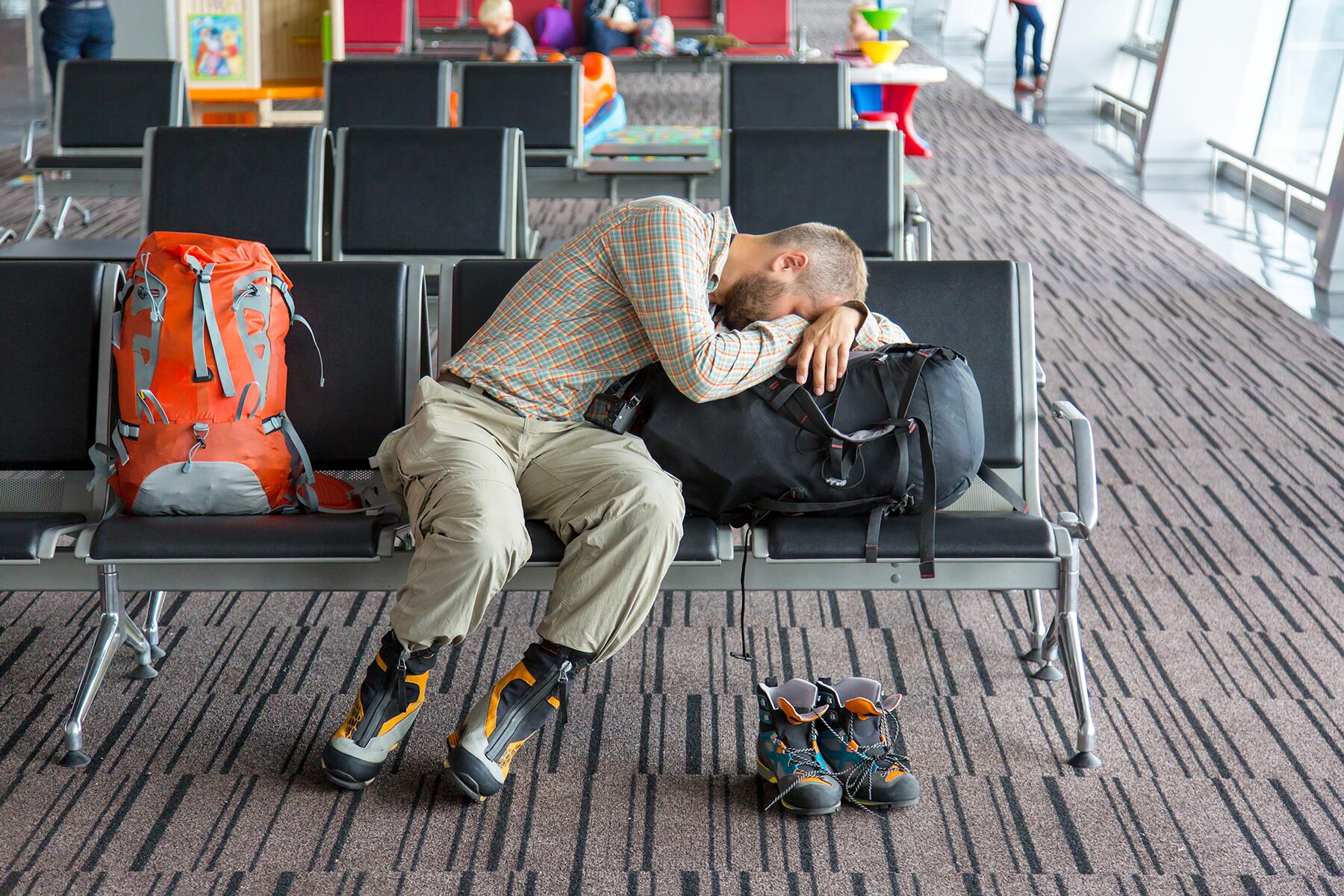Between lockdowns and ever-changing government regulations, the coronavirus pandemic has binational couples navigating new waters.
When embarking on a relationship with someone from a different country, there are certain issues you can expect beyond the usual struggles of every couple. Culture clashes, visa woes, lots of flights, and perhaps a language barrier are all par for the course.
After meeting my boyfriend while on vacation in Colombia, we endured all that and more. My eventual move to his hometown made certain matters a lot easier, but no one could have predicted the mess that would be 2020 and its far-reaching consequences.
Our month-long visit to my family in Florida turned into five months thanks to the coronavirus pandemic. With the Colombian borders closed to international flights and my boyfriend’s U.S. tourist visa about to expire, we made the difficult decision of booking him a flight to Mexico. We could have extended his tourist visa under a COVID-specific exception, but that might complicate things down the road if he ever applies for U.S. residency. So we’re separated again, but this time there’s no end in sight. No specific end goal to keep us motivated. It’s going to be rough.
Struggling through this unexpected consequence of the pandemic, I looked for other binational couples suffering a similar fate. Partially because misery loves company, but mostly to commiserate and maybe even find stories that give me hope. Here’s what I found:
Top Picks for You
A Globe-Trotting Fairy Tale Postponed
Olivia, an American travel writer, was gallivanting around Southeast Asia when she met Jonathan, a Danish ship officer, at a bar in Bangkok. Four beers and a kiss later, they decided to skip their individual plans and travel Thailand together.

“It was love at first sight,” Olivia says. “And trust me, I’m a former professional matchmaker, so I don’t use a cliched term like that lightly.”
At the end of their nearly three-week trip, Olivia booked a one-way ticket to Copenhagen and moved in with Jonathan. That was in early 2018. They’ve been connected at the hip ever since, and recently set off on a spontaneous trip around the world. They made it to six countries before everything shut down thanks to the COVID-19 pandemic. Jonathan returned to Denmark, as per government regulations, but Olivia decided to shelter in place in Thailand. With Danish borders closed to everyone other than citizens and residents, they had no idea when or where they’d reunite.
The couple is accustomed to spending long periods apart, but the uncertainty made this situation different. Weeks turned into months until the Danish government became the first European country to decide that significant others—not just spouses and immediate family—could enter the country. Within a few days, she was back in Jonathan’s arms, realizing more than ever the importance of planting permanent roots in Denmark.
Her advice for other binational couples separated by the pandemic?
“If you can learn to miss one another without feeling reliant on your partner for happiness, I promise you that your relationship will not only continue throughout these unprecedented times forced apart, but it will grow.”
Rethinking Long Distance
Becca wasn’t looking for a relationship when she met Ivan, a British personal trainer living in London. Although Phoenix was her home base at the time, she often traveled to London for extended periods as part of her personal assistant job. The family she worked with joked that they wanted to set her up with Ivan, but it wasn’t until a month-long stay in Spring 2018 that she decided to meet him for some guided workout sessions.
Ivan clearly impressed her with more than just his bicep curls as they exchanged phone numbers under the guise of “tracking fitness progress” and kept in touch well after Becca’s return to Arizona. Months later, after Becca took a trip to Sweden, Ivan invited her to visit him as well. She gladly accepted, and it became the seamless beginning of their bi-continental relationship.
With flexible jobs and a love for travel, Becca and Ivan have spent the last two years meeting up with each other about every month and a half. Making plans for future visits kept the couple motivated and an open line of communication kept their long-distance relationship both strong and exciting.

Then the pandemic hit and put a dent in their perfect plans, canceling already scheduled visits in Germany, France, and Montana. At first, the couple didn’t feel the pressure of the pandemic on their relationship. They were used to distance and had just seen each other in late February. But Becca admits that tensions are now higher than usual as they find new ways to cope with the uncertainty. The pandemic is also challenging how they view the future of their relationship.
“If the world is ending, you want to be with the person you love. You don’t want to be stuck across the world from them,” Becca explains, adding that they both feel ready now to make more concrete plans for their future.
Digital Nomads Searching For Home
Ashley and Matt met seven years ago in Singapore during their freshman year of university. After months of developing a strong friendship, Ashley says they “caught feelings” and being together as a couple felt like a natural transition.
Studying at a global business school that brought them to Singapore, Dubai, and Sydney, it’s no wonder they decided to continue the adventure as digital nomads after graduation. With American (Ashley) and Australian (Matt) passports in hand, the options seemed endless. They started their journey in Bali and continued to travel throughout Southeast Asia. On their fifth anniversary, Matt proposed and they married just a few months before COVID-19 changed their plans. Instead of continuing their travels, they decided to move closer to family.

As a married couple, Ashley got the green light to enter Australia after the frustration of emailing and calling various embassies. But with a limit on how long she could stay in Australia, they recently came to the U.S., where Matt’s tourist visa also has an expiration date.
“As digital nomads, we are comfortable with adapting to change quickly and being quite flexible with our plans,” Ashley says. “However, it has been difficult for us emotionally and mentally. We are constantly fighting to stay together.”
Though they’re not ready to apply for residency in either of their countries, the pandemic has forced Ashley and Matt to think about where they would like to settle their official roots. In the meantime, they’re keeping an eye on border openings and closures, looking for countries that will welcome both of their passports.
“I hope that countries will be open to helping binational couples stay together during this time,” Ashley says. “We only look at countries that will accept the both of us. Our main priority is and will always be to stay together—whatever that looks like.”
Separated at the Border
Like many Canadians, Allie and her family spend their winters in Florida. Luckily, her job as a lakefront real estate agent allows for this flexibility. It was on one of these jaunts to Tampa that her parents hired Jesse to perform at a party they were hosting. As newly-minted fans of his music, they later brought Allie to a local bar to see Jesse play. Introductions were made and their relationship took off from there.
They spent every day of the 2018-2019 winter season together and by January 2020 Jesse proposed. They made plans to marry and close the gap of their long-distance relationship by traveling back and forth between their countries. But as the pandemic grew worse, they had to rethink everything.

One factor that played a role: health care. They knew if Allie were to get sick in Florida that an American medical bill would obliterate their savings. With quarantine canceling all of Jesse’s gigs overnight, there was nothing holding the pair back from going to Canada. They had a courthouse wedding in March and called border patrol multiple times to confirm that their marriage certificate would allow Jesse to enter Canada. They packed their bags, loaded up Allie’s car, and started the 24-hour drive to the Canadian border, but not before calling one more time just to be sure.
When they attempted to cross the border, however, they received the news that Canada had changed its rules just hours before their arrival. Jesse was suddenly a “nonessential traveler” and had to turn back. Since Allie had technically already crossed over into Canada, she needed permission from the American border patrol officers to reenter the country. She was also denied. They were separated at the border, leaving Jesse to drive back home alone.
“This isn’t normal,” Jesse says reflecting on that moment at the border. “You shouldn’t be separated from your wife just a couple of weeks after getting married. This should be a happy time, and they stripped that from us.”
The couple spent three months apart, fearing that another denied attempt to enter each other’s countries could result in a yearlong ban. But Allie couldn’t take being away anymore. With a bit of research and a whole lot of planning, she flew to Florida, surprised Jesse with a visit in June, and caught it on Tik Tok, too! Her timing also happened to be perfect. A few weeks later, Canada changed its tune and deemed spouses as “essential,” paving the way for Jesse and Allie to move north together.
Now, as they apply for Jesse’s Canadian residency and hope to maintain their plans of living in both countries, they’re just happy to continue the newlywed life by each other’s side.
Struggles of an International Family
Alison admits that when she studied abroad in Madagascar in 1998, she initially went with the vision of an American anthropologist curious about “other people.”
“Living with my host family, I realized that people are people,” she says now. Among the many she met was Rodman, her host brother and now her husband. “We really connected over our curiosity for life and the universe,” she reminisces.
But their love story didn’t officially begin in 1998. After she left Madagascar, the pair kept in touch but didn’t reconnect in person until 2010 when Rodman took a road trip across the U.S. Things took off from there.
In 2012, they tied the knot in Las Vegas, and in 2013, Alison quit her job and moved to France to be with Rodman full time. Two years later, the couple welcomed their daughter into the world with their son following suit in 2016. With Alison’s son and Rodman’s daughter, both from previous relationships, they’re a family of six when the whole crew gets together.

Now, the couple lives in Rodman’s hometown in Madagascar with their youngest children, while Rodman’s daughter stayed in France and Alison’s son moved back to the U.S. Having an international family comes with its challenges, but Alison says they feel “grounded, happy and free in a way [they] didn’t feel in France or the U.S.”
The pandemic, however, has amplified the struggles of having family not only in different countries, but on different continents. Alison’s plans to visit her son in the U.S. were canceled as were plans for Rodman’s daughter to join them over her spring and summer breaks. For the first time in five years, they weren’t able to get together as a whole family, but what hit them the hardest was the recent hospitalization of Alison’s father.
“At first, it was really hard…emotionally speaking, I was never prepared to be more than a three-day trip from my son or my parents,” Alison explains. “I didn’t want to leave our home here, but I was really worried about my family.”
Alison’s parents quickly assured her that they preferred she stay safe in Madagascar rather than risk flying. It alleviated the pressure to find a way back to the States and thankfully, Alison’s father is doing much better these days. Now, as the couple awaits the return to normality, they find themselves reevaluating goals for the future.
“Ultimately, I think we are going to be better than before,” Alison says. “This time has really forced us to slow down and check-in with our values, our dreams, and how we want to live.”
Like my boyfriend and me, none of these couples foresaw the challenges that awaited them in 2020. The COVID-19 pandemic has impacted nearly every aspect of life in one way or another, and no one will leave this year entirely unscathed. But if there’s anything that these binational couples prove, it’s that love will always find a way.



